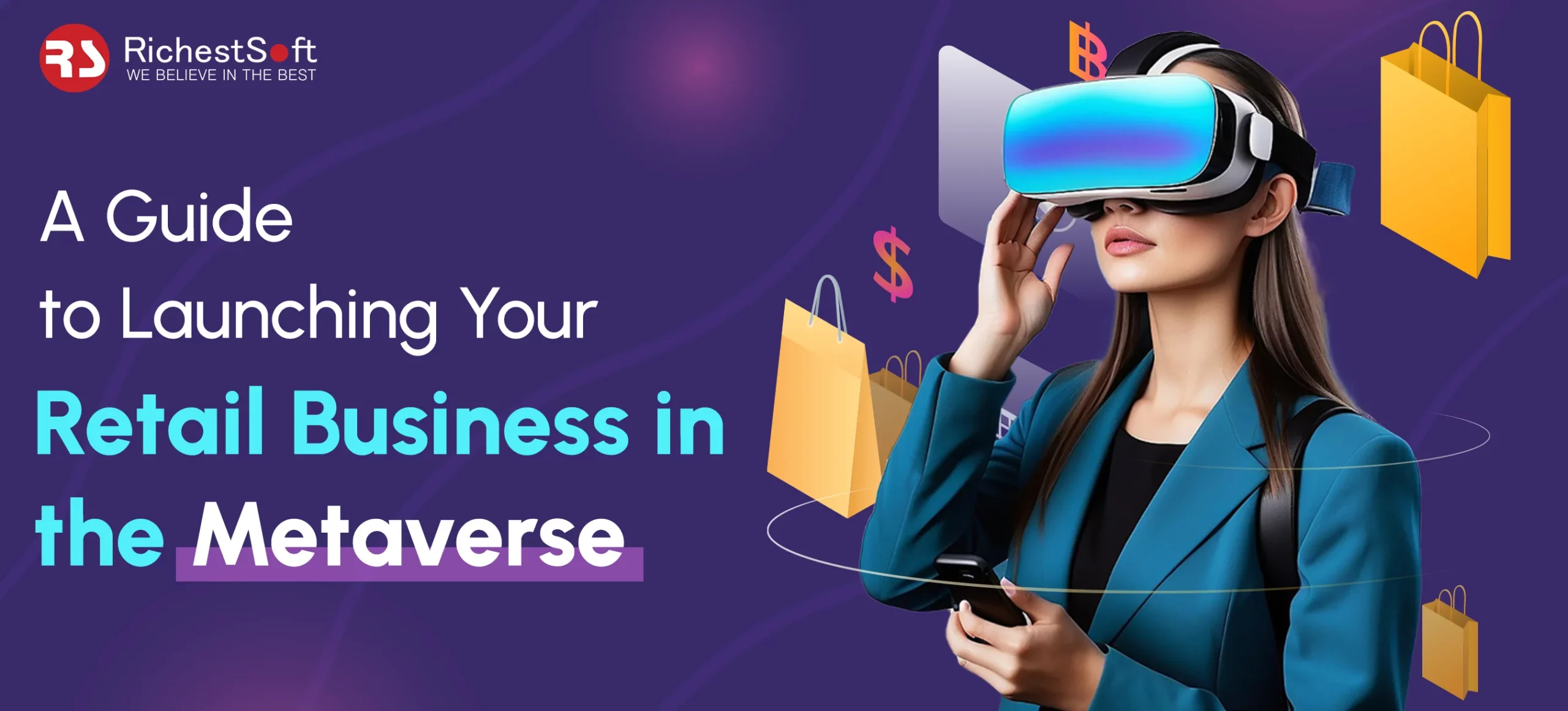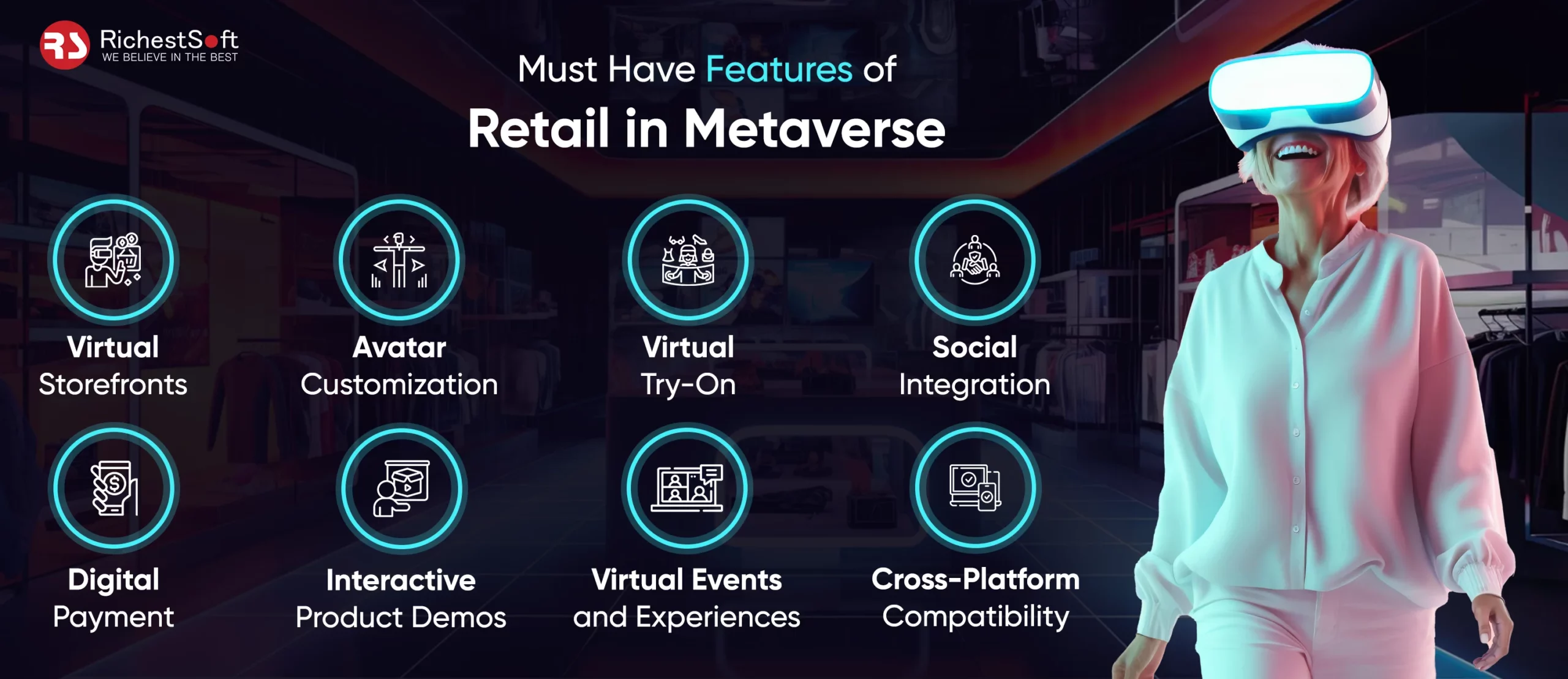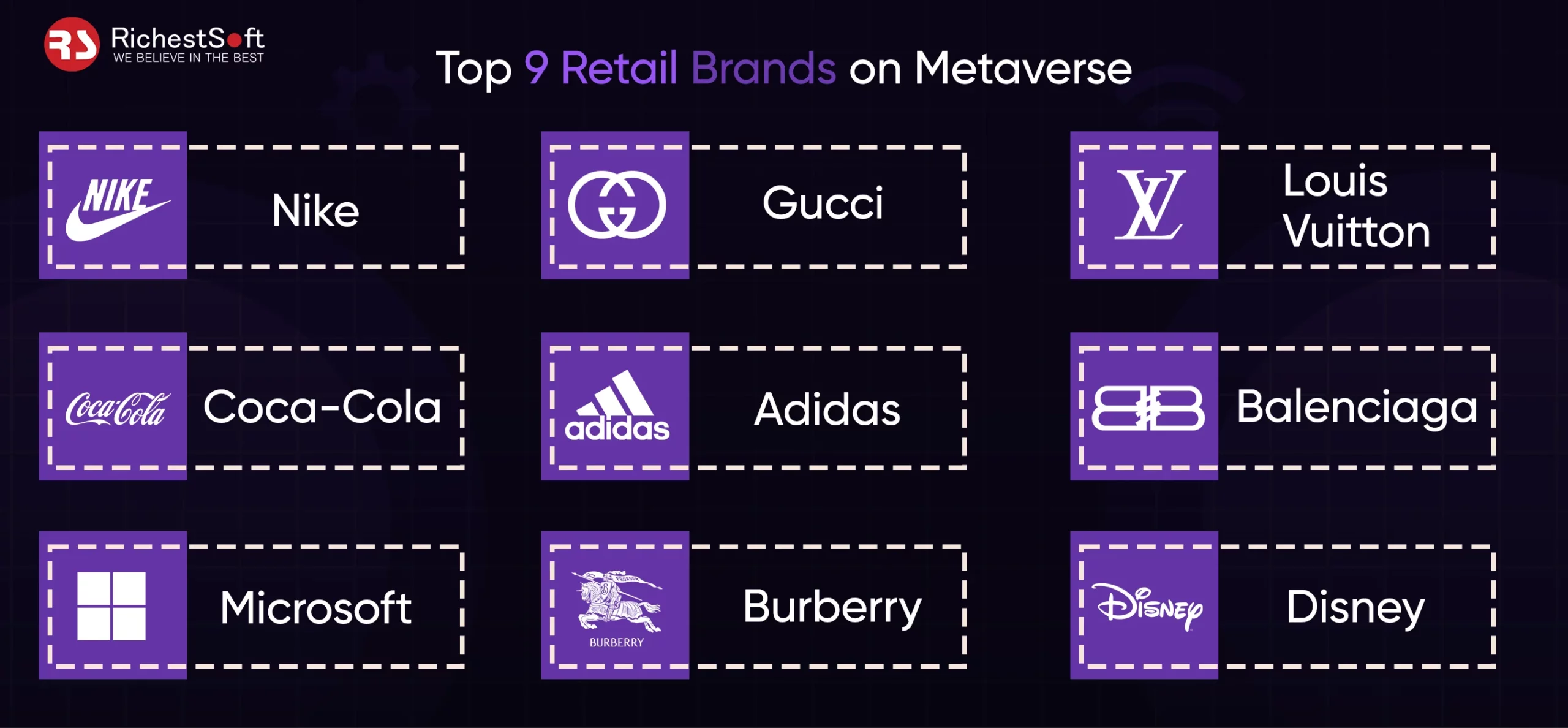A Guide to Launching Your Retail Business in the Metaverse – The metaverse concept has transitioned from science fiction to a tangible digital reality in recent years, offering boundless opportunities for entrepreneurs and businesses alike. As the metaverse evolves, it presents a unique landscape for retail ventures to thrive in entirely virtual environments. With an ever-expanding audience of digital natives and tech enthusiasts, tapping into the metaverse can revolutionize traditional retail models and redefine the shopping experience.
This guide is your comprehensive companion, leading you through the essential steps and strategies for launching your retail business in the metaverse. From grasping the fundamentals of this immersive digital realm to mastering the intricacies of virtual storefronts and customer engagement, we’ll equip you with the knowledge and insights needed to confidently embark on your journey into the virtual frontier.
Whether you’re a seasoned entrepreneur looking to expand your business into new frontiers or a budding visionary eager to explore the possibilities of the metaverse, this guide will serve as your roadmap to success. Join us as we unlock the potential of the metaverse and discover how you can carve out your niche in this brave new world of digital commerce.
 Scope of Retail Business in Metaverse
Scope of Retail Business in Metaverse
Global Accessibility
The metaverse transcends physical boundaries, providing retailers an unprecedented opportunity to reach a global audience without the constraints of brick-and-mortar establishments. With virtual storefronts accessible from anywhere worldwide, retail businesses can tap into previously untapped markets and engage with diverse consumer demographics on a scale never imagined.
Immersive Shopping Experiences
Retail companies can create immersive and interactive shopping experiences beyond traditional e-commerce platforms in the metaverse. From virtual try-on sessions to personalized avatar customization, the metaverse offers consumers a more engaging and lifelike shopping experience, enhancing brand loyalty and driving sales.
Innovative Marketing Strategies
Retailers in the metaverse can leverage innovative marketing strategies that leverage the power of virtual reality, augmented reality, and social media integration. By creating branded virtual environments, hosting virtual events, and collaborating with digital influencers, retail businesses can cultivate a strong online presence and connect with consumers in new and exciting ways, fostering deeper engagement and brand advocacy.
NFTs and Virtual Assets
The rise of non-fungible tokens (NFTs) development and virtual assets within the metaverse presents retail businesses with unique opportunities to monetize digital goods and create new revenue streams. From virtual fashion collections to digital artwork and real estate, retail brands can leverage NFTs to offer exclusive digital assets that hold tangible value within the virtual ecosystem, attracting collectors and enthusiasts alike.
Must Have Features of Retail in Metaverse
Virtual Storefronts
Establishing virtual storefronts allows retail businesses to showcase their products in immersive digital environments within the metaverse. These virtual spaces can be customized to reflect the brand’s identity and provide an engaging shopping experience for users.
Avatar Customization
Integrating avatar customization features enables users to personalize their virtual representation within the metaverse. This allows for a more interactive shopping experience where users can try on virtual clothing and accessories before making a purchase.
Virtual Try-On
Implementing virtual try-on technology enables users to try on clothing, accessories, and other products within the metaverse virtually. This feature enhances the shopping experience by allowing users to visualize how products will look and fit before making a purchase decision.
Social Integration
Integrating social features within the retail experience in the metaverse allows users to interact with friends, share their shopping experiences, and seek recommendations from their social networks. This fosters community and enhances user engagement within virtual shopping environments.
Digital Payments
Offering seamless digital payment options within the metaverse simplifies the checkout process for users and facilitates frictionless transactions. Integrating secure payment gateways and cryptocurrency payment options ensures that users can purchase products conveniently within the virtual environment.
Interactive Product Demos
Providing interactive product demonstrations within the metaverse allows users to explore and interact with products in detail. This feature can include 3D product models, product animations, and virtual product tours that showcase key features and functionalities.
Virtual Events and Experiences
Hosting virtual events and experiences within the metaverse creates opportunities for retail businesses to engage with customers in unique and memorable ways. These experiences can drive excitement and generate buzz around new products and collections, from virtual fashion shows to product launch events.
Cross-Platform Compatibility
Ensuring cross-platform compatibility allows users to access the retail experience in the metaverse across a variety of devices and platforms. Whether users are accessing the metaverse via VR headsets, desktop computers, or mobile devices, they should have a seamless and consistent shopping experience regardless of the platform they are using.
Real Life Use Cases of Retail Stores in Metaverse
Virtual Showrooms
Retail stores in the metaverse can create virtual showrooms where customers can explore and interact with products in a simulated physical environment. For example, a furniture retailer can create a virtual showroom showcasing different furniture collections, allowing customers to visualize how pieces would look in their own homes through virtual reality.
Virtual Events and Launches
Retailers can leverage the metaverse to host virtual events and product launches, providing an immersive experience for customers. For instance, a fashion brand could organize a virtual fashion show to unveil its latest collection, allowing customers to attend the event from anywhere in the world and interact with the products in real-time.
Virtual Try-On and Customization
Metaverse retail stores can offer virtual try-on experiences, enabling customers to virtually try on clothing, accessories, and cosmetics using their personalized avatars. This allows customers to see how products look and fit before making a purchase, enhancing their confidence and reducing the likelihood of returns.
Virtual Pop-Up Shops
Retailers can create virtual pop-up shops within the metaverse to introduce limited-edition products or collaborations. These virtual pop-up shops can generate excitement and exclusivity around the products, driving customer engagement and sales. For example, a sneaker brand could launch a virtual pop-up shop within a popular virtual world, offering limited-edition sneakers that are only available for purchase for a limited time.
Top 9 Retail Brands on Metaverse
The metaverse is rapidly becoming the next frontier for retail brands to showcase their products, engage with customers, and create immersive shopping experiences like never before. Certain pioneers stand out among the myriad of brands exploring this virtual landscape for their innovative approach and seamless integration into the metaverse.
Nike
With its iconic swoosh logo and renowned athletic apparel, Nike has seamlessly transitioned into the metaverse, offering virtual versions of its products for users to purchase and customize for their avatars. Through partnerships with virtual platforms, Nike has established virtual stores and sponsored virtual events, solidifying its presence in the digital world of sports and fashion.
Gucci
Known for its luxury fashion and avant-garde designs, Gucci has embraced the metaverse as a canvas for creative expression and brand storytelling. Through collaborations with digital artists and virtual reality experiences, Gucci has blurred the lines between physical and digital fashion, captivating audiences with immersive environments and exclusive virtual collections.
Louis Vuitton
Louis Vuitton has redefined luxury retail in the metaverse, offering virtual replicas of its iconic handbags, accessories, and ready-to-wear collections. With meticulously crafted virtual spaces and interactive experiences, Louis Vuitton has attracted a global audience of fashion enthusiasts eager to explore its virtual boutiques and engage with the brand in new and exciting ways.
Coca-Cola
As a global beverage powerhouse, Coca-Cola has embraced the metaverse as a platform to connect with consumers and promote its iconic brand. Through virtual events, branded merchandise, and interactive experiences, Coca-Cola has leveraged the immersive nature of the metaverse to engage with fans and foster a sense of community around its products and values.
Adidas
Adidas has embraced the metaverse as an extension of its brand identity, offering virtual versions of its iconic sneakers and sportswear for users to purchase and showcase in virtual environments. Through partnerships with gaming platforms and virtual influencers, Adidas has cultivated a digital presence that resonates with a new generation of consumers immersed in gaming and digital culture.
Balenciaga
With its avant-garde designs and bold aesthetic, Balenciaga has established a strong presence in the metaverse, blurring the lines between fashion and digital art. Through virtual fashion shows, interactive experiences, and collaborations with digital creators, Balenciaga has pushed the boundaries of virtual fashion, captivating audiences with its visionary approach to design and storytelling.
Microsoft
As a leading technology company, Microsoft has been at the forefront of shaping the metaverse ecosystem, providing tools and platforms for brands to create immersive experiences and virtual storefronts. Through its Mixed Reality platform and partnerships with virtual reality developers, Microsoft has enabled retail brands to seamlessly integrate into the metaverse and engage with consumers in new and innovative ways.
Burberry
Burberry has embraced the metaverse as a platform for creativity and innovation, offering virtual representations of its iconic trench coats, scarves, and accessories. Through immersive experiences and digital collaborations, Burberry has transformed its brand into a virtual playground for fashion enthusiasts, inviting them to explore its virtual world and discover exclusive content and collections.
Disney
With its rich storytelling and beloved characters, Disney has ventured into the metaverse, bringing its magical worlds to life in immersive virtual experiences. Through partnerships with virtual reality developers and theme parks, Disney has created virtual environments where fans can interact with their favorite characters, explore iconic landmarks, and embark on unforgettable adventures.
These retail brands exemplify the transformative power of the metaverse, demonstrating how forward-thinking companies are embracing digital innovation to redefine the future of retail and create immersive experiences that captivate audiences around the globe. As the metaverse continues to evolve, these brands will continue to push the boundaries of creativity and reinvent how we shop, connect, and experience the world.
How To Build Retail Store in Metaverse
Building a retail store in the metaverse involves several key steps to create an immersive and engaging virtual shopping experience. Here’s a guide on how to build a retail store in the metaverse:
Choose a Platform
First, decide which metaverse platform you want to build your retail store in. Popular platforms include Decentraland, Roblox, VRChat, and Second Life. Each platform has its own set of features and capabilities, so choose one that aligns with your business goals and target audience.
Design Your Virtual Space
Once you’ve chosen a platform, design your virtual retail space. Consider factors such as layout, aesthetics, and branding to create an immersive and visually appealing environment. Use 3D modeling tools to create virtual storefronts, displays, and product showcases that accurately represent your brand and products.
Integrate Interactive Features
To enhance the shopping experience, integrate interactive features into your virtual retail store. This could include virtual try-on technology for clothing and accessories, interactive product demos, and personalized avatar customization options. These features will make the shopping experience more engaging and enjoyable for customers.
Stock Your Inventory
Populate your virtual store with products from your inventory. This could include virtual replicas of physical products, digital goods, or exclusive virtual items. Make sure to accurately represent each product with detailed descriptions, images, and pricing information.
Implement Payment Systems
Enable seamless digital payment systems within your virtual store to facilitate transactions. Integrate secure payment gateways that support a variety of payment methods, including credit cards, digital wallets, and cryptocurrency, to accommodate diverse customer preferences.
Promote Your Store
Once your virtual store is up and running, promote it to attract customers. Use social media, email marketing, and online advertising to drive traffic to your virtual store. Consider hosting virtual events, promotions, and giveaways to generate buzz and attract new customers.
Monitor Performance and Feedback
Continuously monitor the performance of your virtual store and gather feedback from customers. Use analytics tools to track metrics such as traffic, sales, and customer engagement to identify areas for improvement. Solicit feedback from customers through surveys, reviews, and social media to gather insights and make adjustments accordingly.
How Richestsoft Can Help You To Build Retail Store In Metaverse
Expertise in Metaverse Development
Richestsoft boasts a team of experienced developers who specialize in metaverse development. With a deep understanding of platforms like Decentraland, Roblox, and VRChat, we can help you navigate the complexities of building a retail store in the metaverse.
Customized Virtual Store Design
Our team will work closely with you to design a virtual store that aligns with your brand identity and business goals. From layout and aesthetics to interactive features and product showcases, we’ll tailor every aspect of your virtual store to create an immersive and visually stunning environment.
Interactive Shopping Experiences
Richestsoft can integrate interactive features into your virtual store to enhance customers’ shopping experience. Whether it’s virtual try-on technology for clothing and accessories or interactive product demos, we’ll help you create engaging experiences that keep customers coming back for more.
 Seamless Payment Integration
Seamless Payment Integration
We’ll ensure seamless integration of digital payment systems within your virtual store to facilitate transactions. From secure payment gateways to support for a variety of payment methods, we’ll make it easy for customers to make purchases within the metaverse.
Support and Maintenance
Our services extend beyond the initial development phase. Richestsoft provides comprehensive support and maintenance to ensure that your virtual store operates smoothly and efficiently. Whether it’s troubleshooting technical issues or implementing updates and enhancements, we’ve got you covered.
Analytics and Optimization
We’ll help you track the performance of your virtual store and gather valuable insights through analytics tools. By analyzing metrics such as traffic, sales, and customer engagement, we’ll identify areas for improvement and optimization to maximize the success of your retail store in the metaverse.
Conclusion
With Richestsoft as your partner, you can leverage our expertise and resources to build a successful retail store in the metaverse that provides customers with an unparalleled shopping experience.
 +1 315 210 4488
+1 315 210 4488 +91 798 618 8377
+91 798 618 8377




